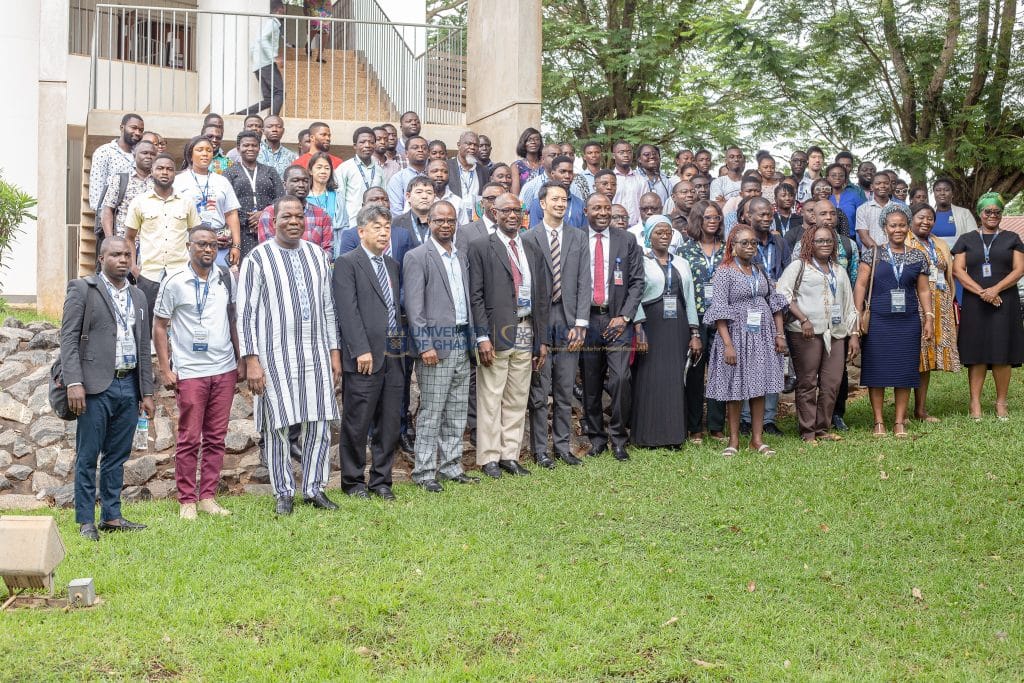The Institute, in collaboration with the Japan International Cooperation Agency (JICA), is set to train fifteen (15) healthcare professionals from nine (9) West African countries; Benin, Burkina Faso, Cote d’Ivoire, Ghana, Guinea, Liberia, Nigeria, Sierra Leone and Togo in modern laboratory technology to enhance their skills in combating infectious diseases.
The eight-week training course designed to improve understanding of modern laboratory technology will also help participants become more knowledgeable and proficient in infectious disease diagnosis.
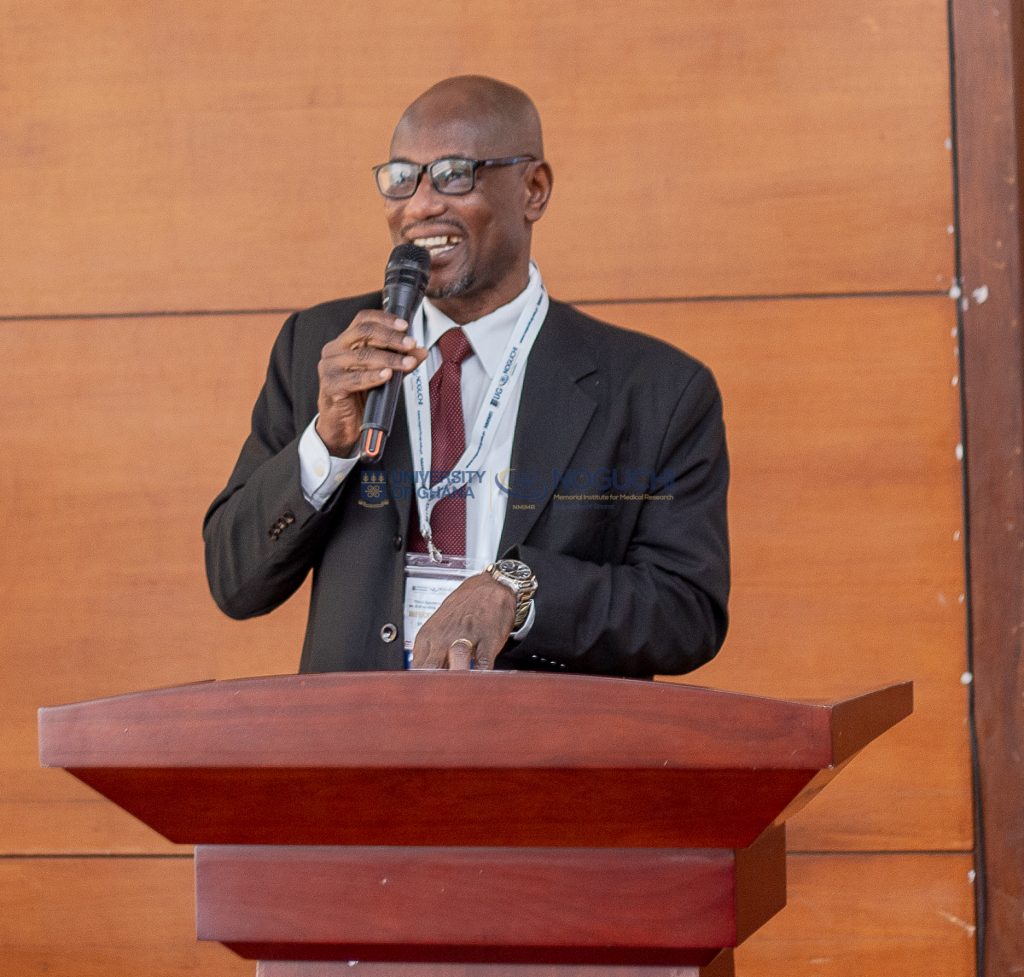
Prof. Michael Ofori, Head, Department of Immunology, NMIMR
The course began with an opening ceremony that was held at the Conference Hall on 2nd October, 2023. Prof. Michael Ofori, who represented the Director during the ceremony, explained that the training has a well-known history among staff and stakeholders, and this year is the fifth training in the series, which started in 2019. He added that though the training began as a response to the Ebola outbreak between 2014 and 2016, the world has experienced other deadly outbreaks such as COVID-19, which will probably never be forgotten in human history.
Prof. Ofori further pointed out that there is a need to train more specialists and laboratory technicians in modern laboratory technology, and such training is crucial in the appropriate diagnosis and treatment of infectious diseases. “We have battled both COVID-19 and other emerging viral diseases such as Marburg, Lassa fever, and monkey pox; hence, the training course has been revised taking these developments into account to ensure that we are giving our health workers the proper training so that they can react to these threats if they ever materialize”, Prof. Ofori reiterated.
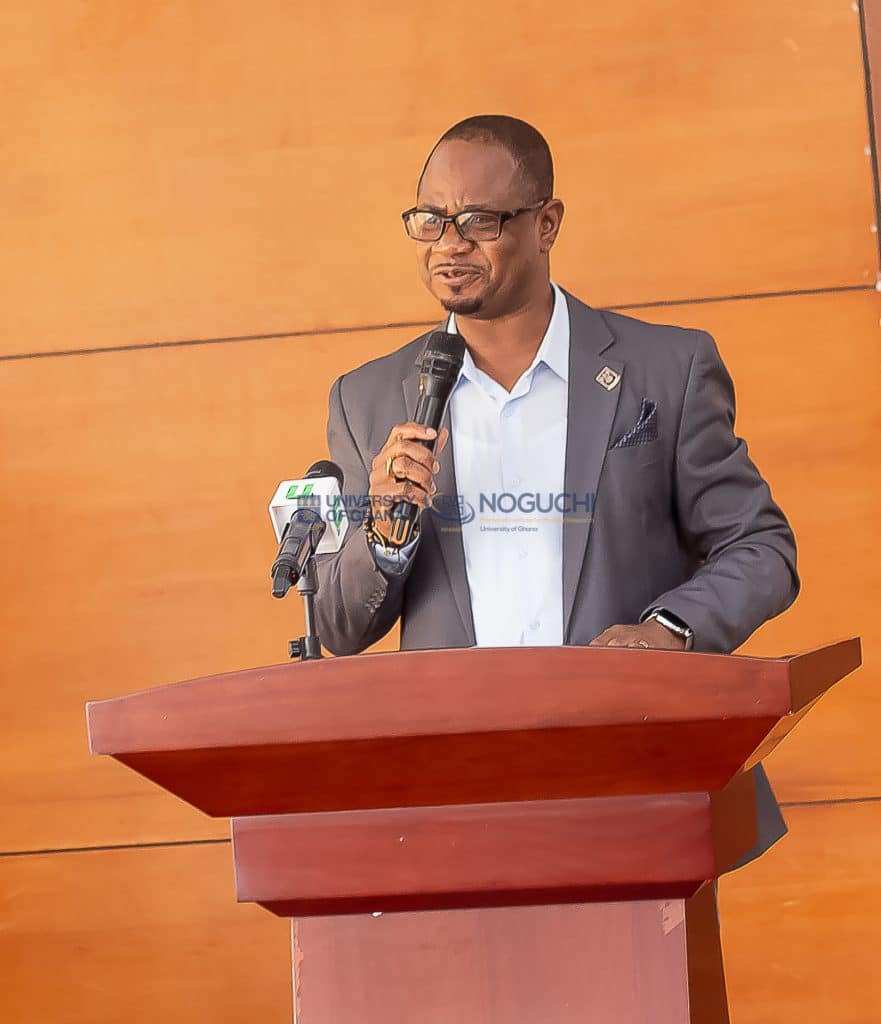
Prof. Samuel Antwi-Baffour, Acting Provost, College of Health Sciences, University of Ghana
Prof. Samuel Antwi-Baffour, Acting Provost, College of Health Sciences, University of Ghana, was Chairman of the occasion, and in his remarks, commended the Institute and JICA for continuously ensuring the effective implementation of the training.
“I want to start by commending the Institute and JICA for your commitment to this training which you have organized for five years continuously without relenting, though it may not have been easy all the time. Your decision to continue with this training to assist laboratory staff of our region’s national institutions is a laudable one, and I thank the staff of both institutions for keeping this up. I believe and hope that this training will continue into the foreseeable future until all staff working in our labs are trained to combat infectious and deadly viruses that threaten our region and world”, Prof. Antwi-Baffour said.
Prof. Antwi-Baffour reiterated that the skills and knowledge of the former trainees were essential in the fight against COVID-19, and these staff still support the laboratories of their various national institutions. He therefore encouraged the training participants to make good use of the opportunity given them. “I urge the trainers to take time to teach our trainees the needed skills to detect and curb some of these viral infections, to prevent widespread outbreaks in the future. Your presence here demonstrates your dedication to lifelong study and professional development, and I urge you to take the courses seriously and return home to pass on what you have learned as we make a difference in our countries”.
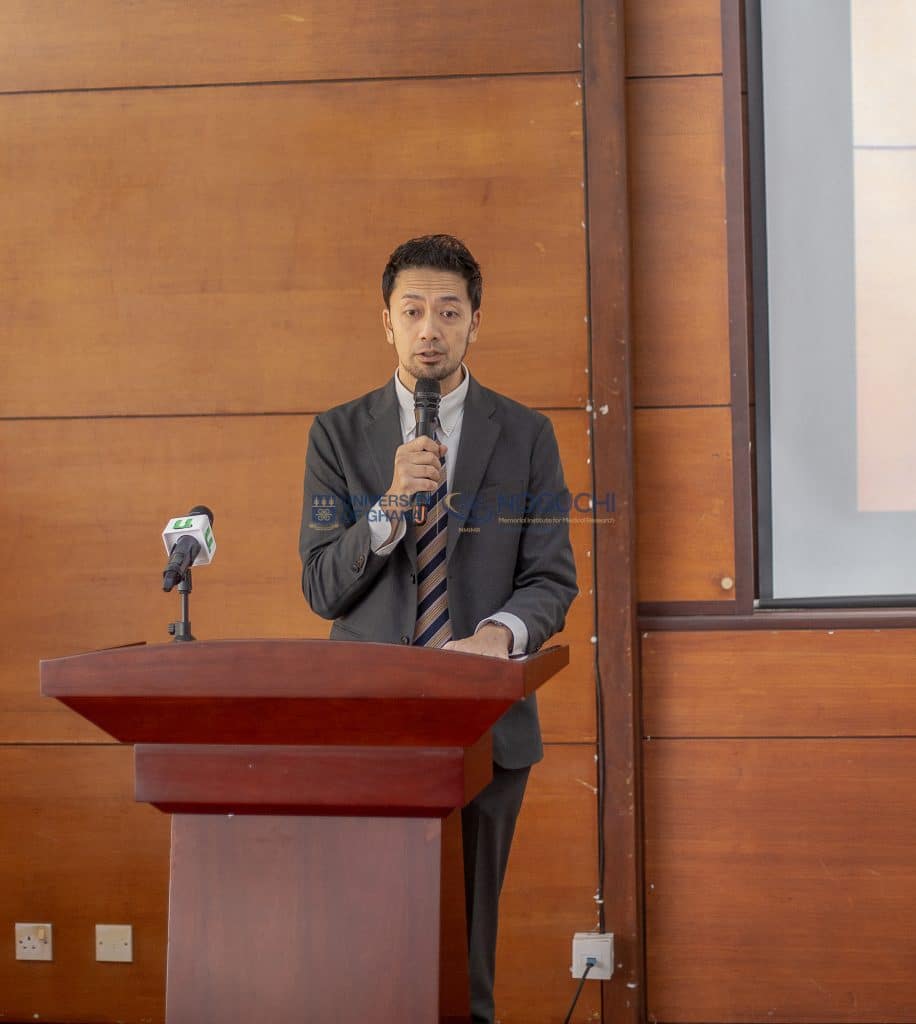
Mr. Oda Ryotaro, Deputy Chief Representative, JICA
Mr. Oda Ryotaro, Deputy Chief Representative, JICA noted that the COVID-19 and the outbreak of monkey pox showed the importance of having resilient health systems especially one equipped with a lot of surveillance systems. This, Mr. Ryotaro said “has become imperative to strengthen critical capacities, create capacities of laboratory workforces in the West Africa sub-region and enhanced responses to public health emergencies. It is for these reasons JICA and Noguchi have developed the third country training course”.
Present at the ceremony were Mr. Theodore Ahuno, Institute Administrator, NMIMR; Mr Patrick Avevor, Representative, World Health Organization, (National Professional Officer – Infectious Hazard Management); Mr. Naoki Mitori, Representative of the Embassy of Japan in Ghana, (Counsellor and Deputy Head of Mission); Mr. Phillip Garjay INNIS, Chargé d’affaires, Embassy of Liberia; Mr. Aikins Abrokwa, Director for Asia and Pacific Bureau (Ministry of Foreign Affairs and Regional Integration); Mr. David Kabre, Ambassador, Embassy of Burkins Faso in Ghana; and staff of the Institute.
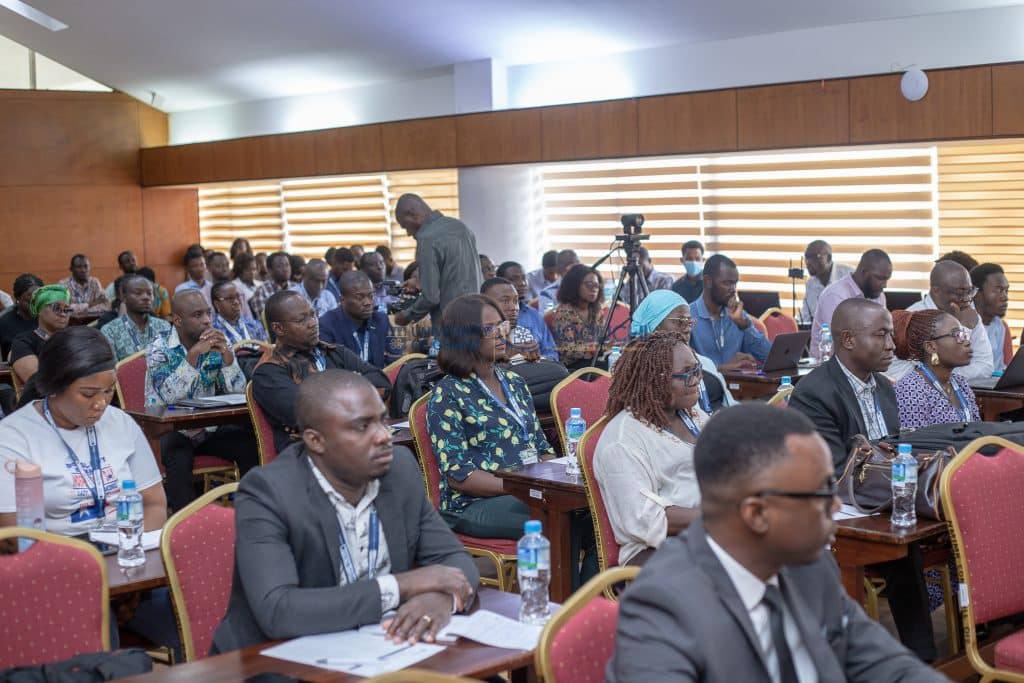
Cross-sectional view of participants at the opening ceremony

